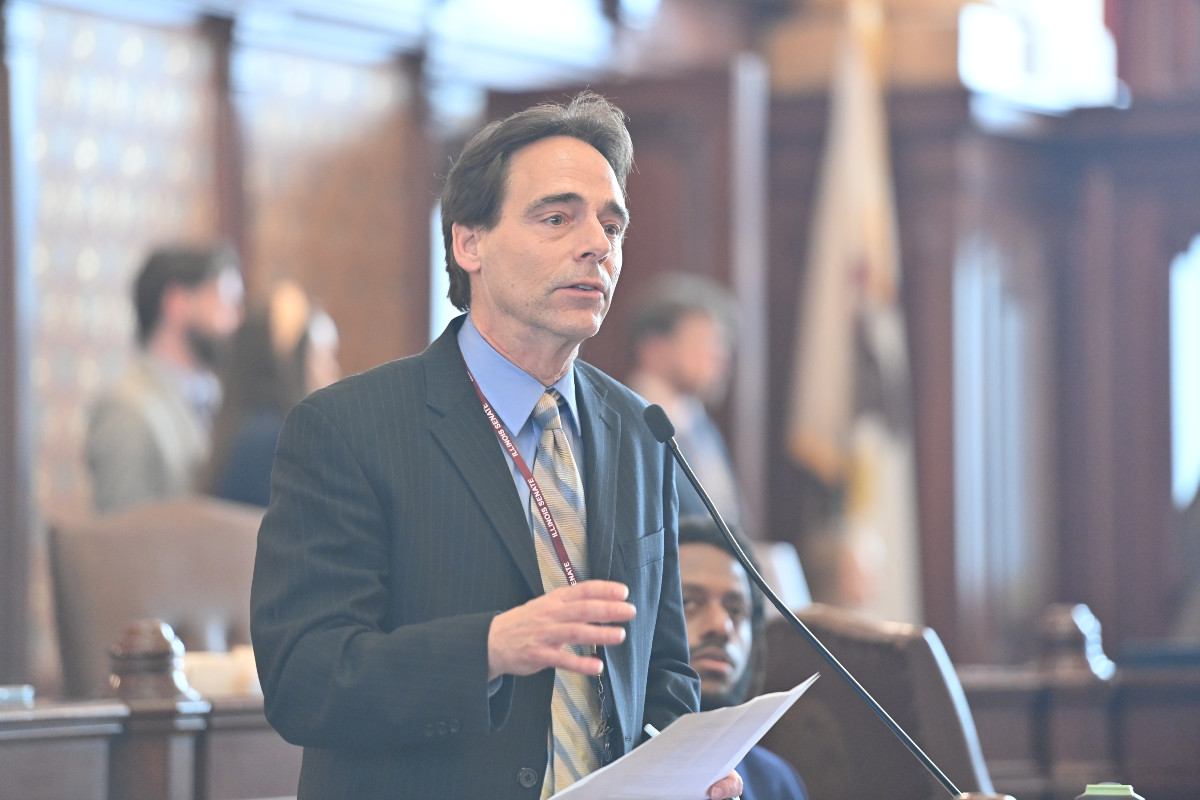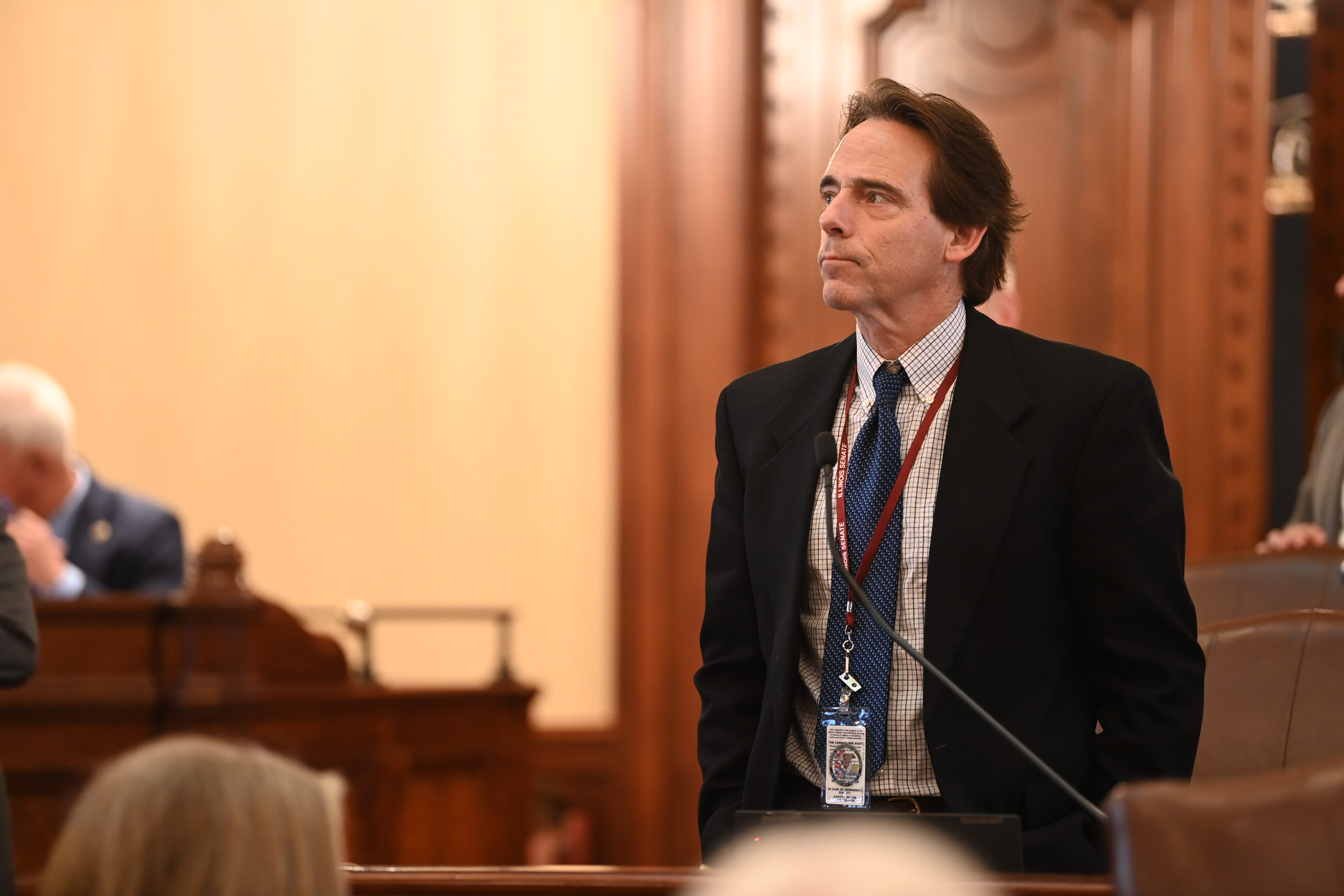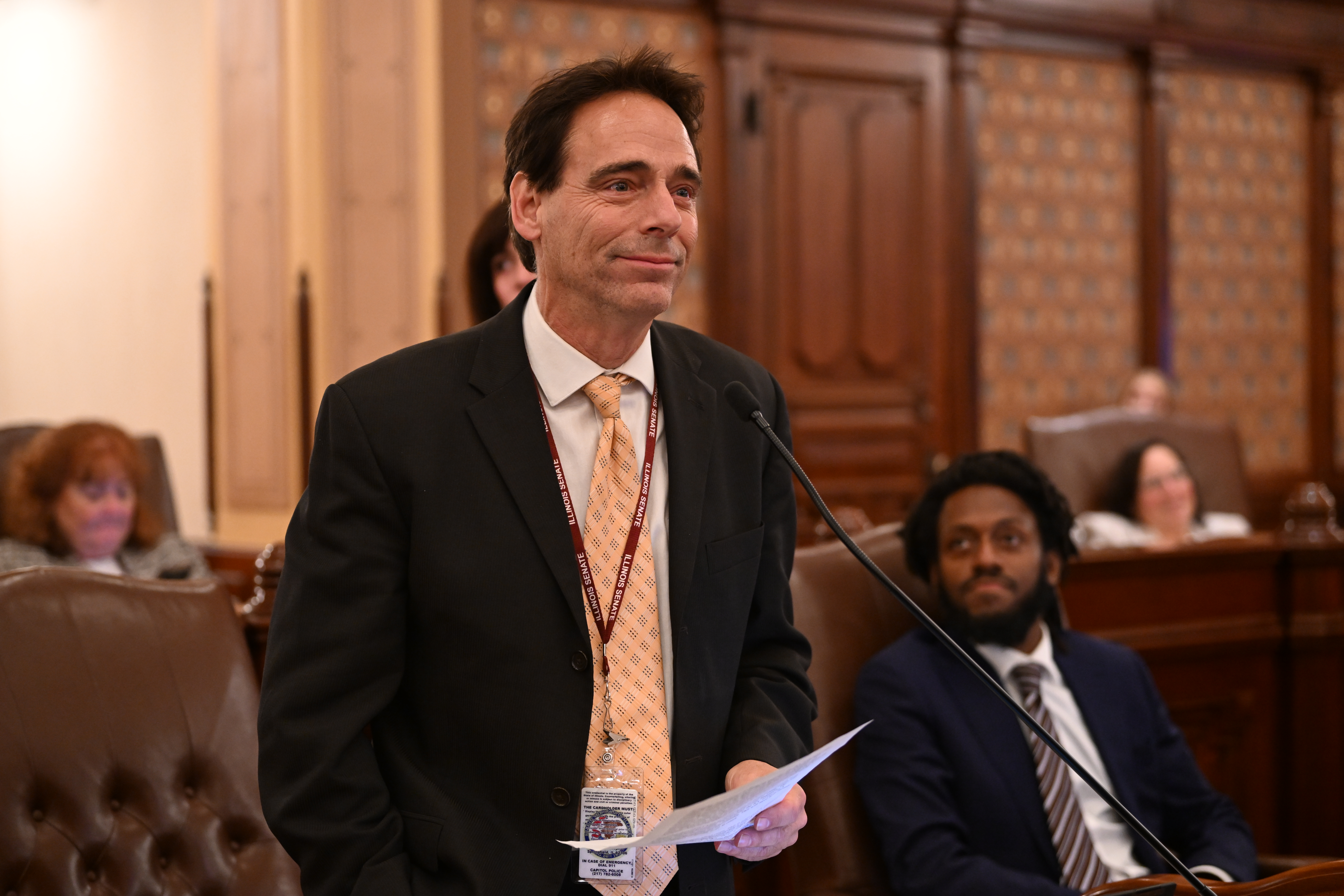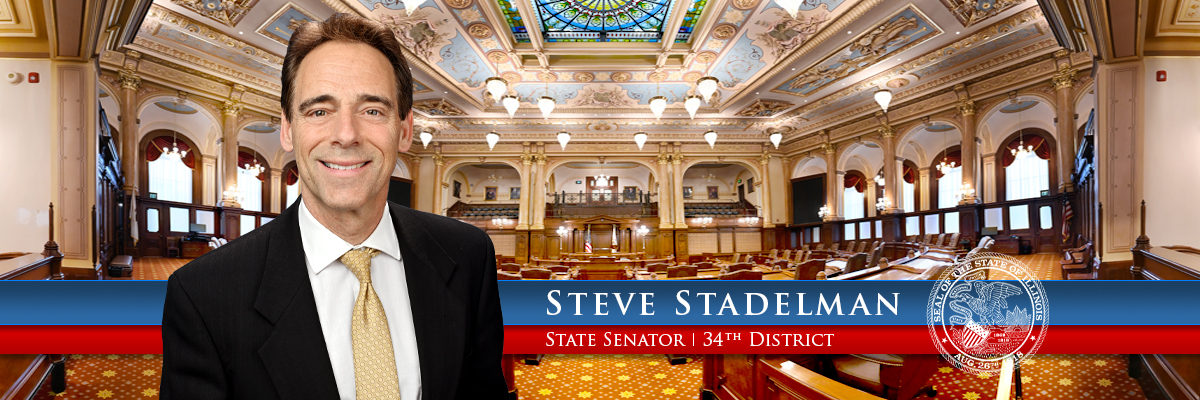Stadelman spearheads Tariff Transparency Act
- Details
- Category: Press Releases
 SPRINGFIELD – To give consumers key information about how federal tariffs are increasing retail prices, State Senator Steve Stadelman introduced a measure that would require retailers to show the cost of tariffs directly on a product’s price tag.
SPRINGFIELD – To give consumers key information about how federal tariffs are increasing retail prices, State Senator Steve Stadelman introduced a measure that would require retailers to show the cost of tariffs directly on a product’s price tag.
“Rising retail costs due to tariffs shouldn’t be hidden from consumers who are already facing a cost-of-living crisis,” said Stadelman (D-Rockford). “When tariffs impact retail prices, that information should be readily visible to consumers.”
When the prices of everyday goods begin to skyrocket, consumers deserve transparency about the reasons why their shopping has become more expensive. Under Stadelman’s proposal, consumers would be clearly informed – at the point of sale on the product itself – how much of the retail price stems from tariffs imposed at the federal level. The bill would also include exemptions for small businesses earning under $500,000 in annual revenue and for products where the tariff impact is under 2% of the retail price.
Stadelman praises $440,000 for local training in construction trades
- Details
- Category: Press Releases
 ROCKFORD – State Senator Steve Stadelman reacted today to the announcement that EDDR Foundation in Rockford would receive $440,000 in funding through the Illinois Work Pre-Apprenticeship Program.
ROCKFORD – State Senator Steve Stadelman reacted today to the announcement that EDDR Foundation in Rockford would receive $440,000 in funding through the Illinois Work Pre-Apprenticeship Program.
“The needs of the workforce remain a priority of mine, so I’m encouraged to see a second round of investment in the Rockford area,” Stadelman said (D-Rockford) in reference to EDDR earning a same-size grant in 2024. “The continuation of this program will increase access to good-paying jobs for underrepresented populations in our region.”
EDDR is among 39 organizations to receive $17 million in pre-apprenticeship grants statewide. Pre-apprenticeship grants are used to create a diverse pool of skilled candidates in construction and building trades and help them establish careers in the field.
Stadelman introduces measure protecting social media users from hackers
- Details
- Category: Press Releases

“While social media platforms provide a free, online space for people to connect and express themselves, the downside is our profiles are available for other users to hack or imitate, making fraud protections incredibly vital," said Stadelman (D-Rockford).
Senate Bill 2823 would require social media companies to create a 24-hour toll-free phone number enabling account holders to contact a live customer service agent to report fraudulent account activity, including unauthorized access or profile hacking.
Stadelman law increases transparency in health care fees on Jan. 1
- Details
- Category: Press Releases

“Patients deserve timely notice of all costs and fees prior to any service they receive,” said Stadelman (D-Rockford). “This new law requires Illinois hospitals to be more transparent and fair to patients by disclosing any extra fees upfront.”
Under the law, hospitals are required to inform patients whether they will be charged a facility fee for outpatient services, separate from a professional fee. Facility fees are charges imposed by health care facilities for the use of their space, equipment and administrative services, whereas professional fees cover the cost of the professional providing the care. The lack of transparency between the two has made patients feel like they are being double charged for their visit.
More Articles …
Page 1 of 125




